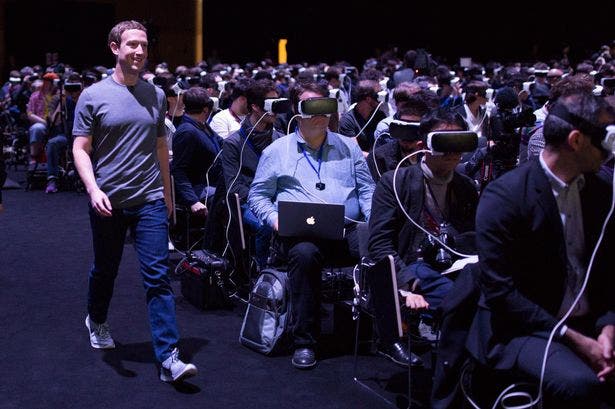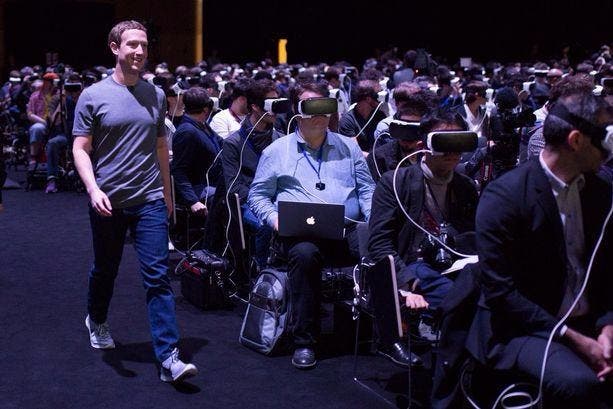Facebook's Mark Zuckerberg set to defend Oculus in court
Will argue ZeniMax "was slow to appreciate potential of VR".
Facebook founder Mark Zuckerberg is set to defend Oculus in court today in the lawsuit with id Software owner ZeniMax over the development of virtual reality technology.

ZeniMax, which also owns The Elder Scrolls and Fallout maker Bethesda, is suing Facebook for $2bn over claims it stole its virtual reality technology.
ZeniMax said Oculus unlawfully copied its early VR tech as it built its own headset, the Rift. Facebook bought Oculus in 2014 for an eye-watering $2bn.
According to the BBC, Zuckerberg will argue ZeniMax "was slow to appreciate the potential of VR - and that it was Oculus' own work that made it the valuable technology it is today".
"We're eager to present our case in court," a spokesman for Oculus said.
"Oculus and its founders have invested a wealth of time and money in VR because we believe it can fundamentally transform the way people interact and communicate.
"We're disappointed that another company is using wasteful litigation to attempt to take credit for technology that it did not have the vision, expertise, or patience to build."
Central to the lawsuit is legendary video game programmer John Carmack. Carmack worked or both id and Oculus for a brief period in 2013, but left ZeniMax completely in November 2013 to work full-time at Oculus.
ZeniMax accuses Carmack of sharing its intellectual property with Oculus while he was working at id Software and claims he took it with him when he left.
In a statement, ZeniMax said it and id Software "welcome the opportunity to present substantial evidence" in court.
"That evidence includes the theft of trade secrets and highly confidential information, including computer code. ZeniMax will also present evidence of the Defendants' intentional destruction of evidence to cover up their wrongdoing. ZeniMax and id Software are the visionary developers of breakthrough VR technology and look forward to the vindication of our claims."
Carmack's lawyers counter this by arguing his contract explicitly allowed him to work with other companies that did not compete with ZeniMax, and thus the tech he helped create did not belong to ZeniMax in the first place.
Oculus founder Palmer Luckey, who has gone off the radar after it emerged he had funded an online troll campaign in support of Donald Trump, is also expected to be called to the stand this week.
ZeniMax says Luckey lacked the expertise to create a viable virtual reality headset, and relied on ZeniMax to help create the prototype that impressed Facebook.
The case, which is taking place in a Dallas, Texas court is expected to last three weeks.

